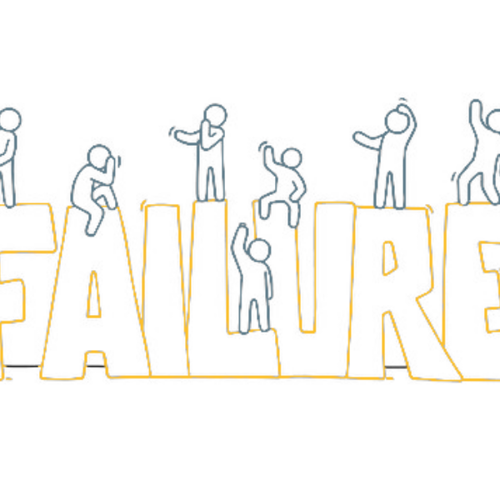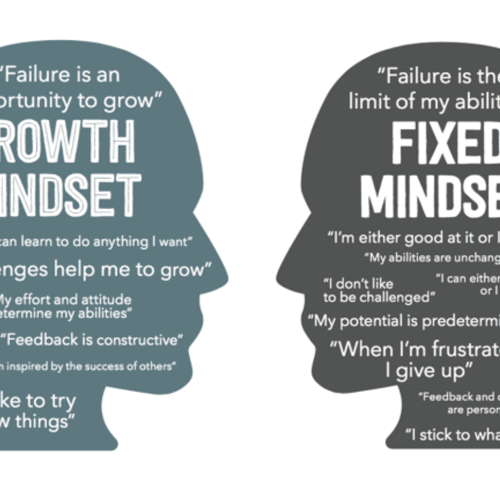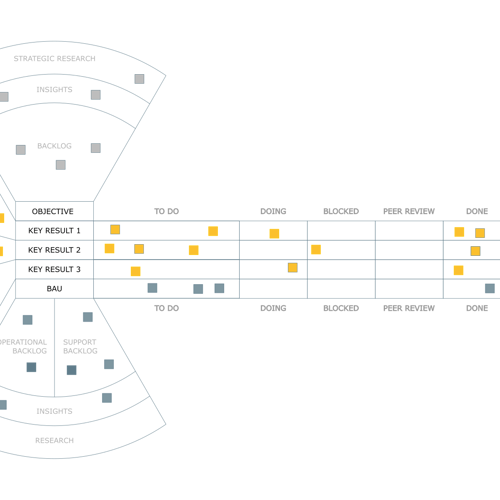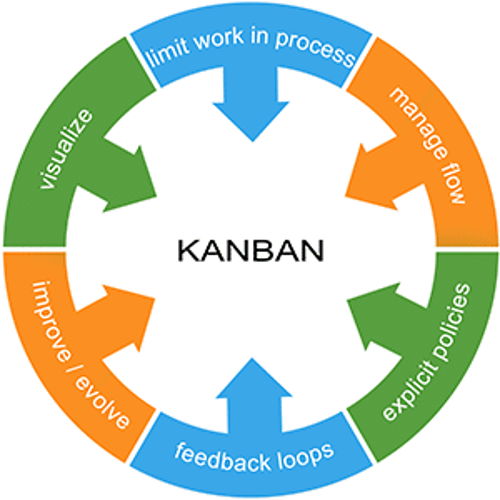Objectives articulate both where we want to go and, importantly, why we want to go there. They need to be qualitative and communicate a teams’ intent. The objectives alone should be inspiring and aligned with others throughout the organisation.
It’s often cited that teams should have 2-3 objectives and whilst I agree that mature, experienced teams could have multiple objectives, less experienced teams should start with 1; focusing on the learning and exploration of setting this objective to gain experience and begin building the strategic muscle.
When ideating on the objective, it can be pretty overwhelming – there are a variety of considerations; namely other OKRs within the organisation that you should align with and the various strategies that shape the field of play (e.g. product, design & technical strategies). In theory, the OKRs and strategies should compliment and align with each other but in reality, this is not always as clear as it can be. If this is the case, don’t beat yourself up and don’t strive for perfection – often OKRs are a learning process for the wider org and people and teams will be at different stage - but do acknowledge where improvements could happen over time. Instead, explore the variety of considerations when setting OKRs but satisfice on the creation of them; nearly always, they will not be right straight from the drafters board and they will be honed when shared and executed up.
When it comes to the lifespan of an OKR, there are some contrasting views around time or value. OKRs need to focus on outcomes and the value therein but there can be a mindset of setting OKRs every quarter. The concept of quarterly OKRs is somewhat in tension with the value delivery and I would not suggest that OKRs are reset every quarter. Instead, the quarters should act as review points whereupon teams should formally review their objectives alongside other teams and the company; in service of ensuring there are four touch points a year to course correct if necessary. The quarterly review should also act as a focusing function for the team where it is reasonable to expect some significant progress in 3 months. But, fundamentally, OKRs need to live as long as they are valuable. If they are no longer valuable, bin them and set new ones, if something more valuable crops up, bin them and set new ones.
Articulation
Wording can be a huge sticking point for many teams as convey intent as well as the where and why is really challenging. This can be achieved by including the medium term impact as well as the longer, wider impact within the sentence – something I use the terms so that or by. For example:
- We aim to <impact> so that <wider impact>
- We aim to <wider impact> by <impact>
This format ensures that anyone who reads the objective could appreciate what the team are trying to achieve and why they are trying achieve it
Key Takeaways
- Objectives are ambitious and may feel somewhat uncomfortable
- Objectives convey the medium to long term impact we want to make







